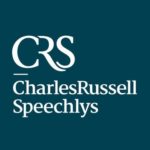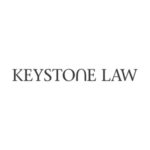Oliver Auld reviews the scope of the Jersey courts to set aside a voluntary disposition or other transaction on the grounds of mistake While the court accepted that Art 47G gave it a flexible decision-making power to determine the extent to which a voidable exercise of power has effect, the court was not persuaded that …
Continue reading "Mistake: Forgiven, but not rewritten"
This post is only available to members.
Wills & Trusts Law Reports | Winter 2020 #181Leonard Dunthorn (Mr Dunthorn) died in 2018, leaving a will pursuant to which the residue of his estate, after a pecuniary legacy, was to pass to his sister Ruby Watts (Mrs Watts), provided she survived him by 28 days. If she did not do so, the residue was to be divided between ten named charities. Mrs Watts survived Mr Dunthorn by more than 28 days and became entitled to his residue. She in turn passed away in 2019, leaving a will which left her residue (after a number of pecuniary legacies) to 11 named charities, the first ten of which were those charities that had been named in Mr Dun...
Deeds of variation are often misunderstood in practice. Charlotte Watts and Joshua Lewison discuss a case that highlights common misapprehensions and possible solutions The judgment confirms that the personal representatives’ power derives from the consent of the beneficiaries and not from any inherent ability to depart from the dispositions of the estate made by the …
Continue reading "Deeds of variation: Mistakes and misconceptions"
This post is only available to members.
Laura Abbott reviews recent case law to discern current attitudes towards rectifying a genuine mistake ‘If a trustee takes advice which later proves to be incorrect, Hastings-Bass is unlikely to relieve the trust of the financial consequences, but the broadened rule of mistake may (in some limited cases) serve to do so, depending on the …
Continue reading "Trustees and mistake: Where are we now?"
This post is only available to members.
The Privy Council has clarified the operation of the rule in Hastings-Bass and how the beneficial ownership of gratuitously transferred assets should be determined. Alan Boyle QC, Richard Wilson QC and Zahler Bryan discuss ‘On the facts of this case MAR’s intention was sufficient, because at the material time MAR was also the governing mind …
Continue reading "Trustees: Relief from flawed decisions"
This post is only available to members.
Mathew Newman and Abby Lund review Guernsey‘s first written judgment on the rule in Hastings-Bass ‘The court ultimately held that any breach of duty by a trustee was capable of being treated as enabling the court to intervene and exercise the Hastings-Bass jurisdiction to set aside the relevant act or transaction, if the court was …
Continue reading "Trustees: Setting the scope of relief"
This post is only available to members.
Gillian Christian highlights a landmark Isle of Man judgment that casts doubt on Pitt v Holt [2013] ‘The principle behind Hastings-Bass refers to the jurisdiction of the court to intervene and set aside a transaction entered into by a trustee (and all fiduciaries) on the grounds of “inadequate deliberation” in the exercise of a discretion.’In …
Continue reading "Trustees: Clear blue water"
This post is only available to members.
Wills & Trusts Law Reports | December 2015 #155This was an application by two beneficiaries of the Onorati Settlement, a Jersey discretionary trust (the trust), to set aside a deed of appointment distributing the trust fund to them. The application was made under the so-called principle in Hastings-Bass on the basis that the trustee had failed to take into account considerations which they ought to have taken into account when exercising their discretion, namely the UK tax consequences of making the appointment. Their application was on the basis that the Respondent (the trustee) had failed to take adequate tax advice.
<...
Wills & Trusts Law Reports | September 2015 #152In 2001 the claimant purchased a house (St Leonard’s Close) with the assistance of a loan from her father. In 2004-5 the claimant’s father agreed to forego the loan. In 2010 the claimant moved out of St Leonard’s Close and into rented accommodation. The claimant wished to buy a different house (Gibbs Green) but she had difficulty selling St Leonard’s Close. Her father therefore agreed to lend her sufficient funds to cover the purchase price of £525,000 and the acquisition costs of £5,000 in respect of Gibbs Green. The claimant’s father made clear, and the claimant agreed, that this was a...
Kennedy v Kennedy [2015] expands the horizons of the doctrine of mistake. Steven Kempster and Sarah Aughwane explain ‘If a trustee makes a causative mistake of sufficient gravity, the transaction is voidable even if the mistake is as to the tax consequences.’ Two years ago the Supreme Court heard the joined appeals in Pitt v …
Continue reading "Mistake: Fault lines"
This post is only available to members.







